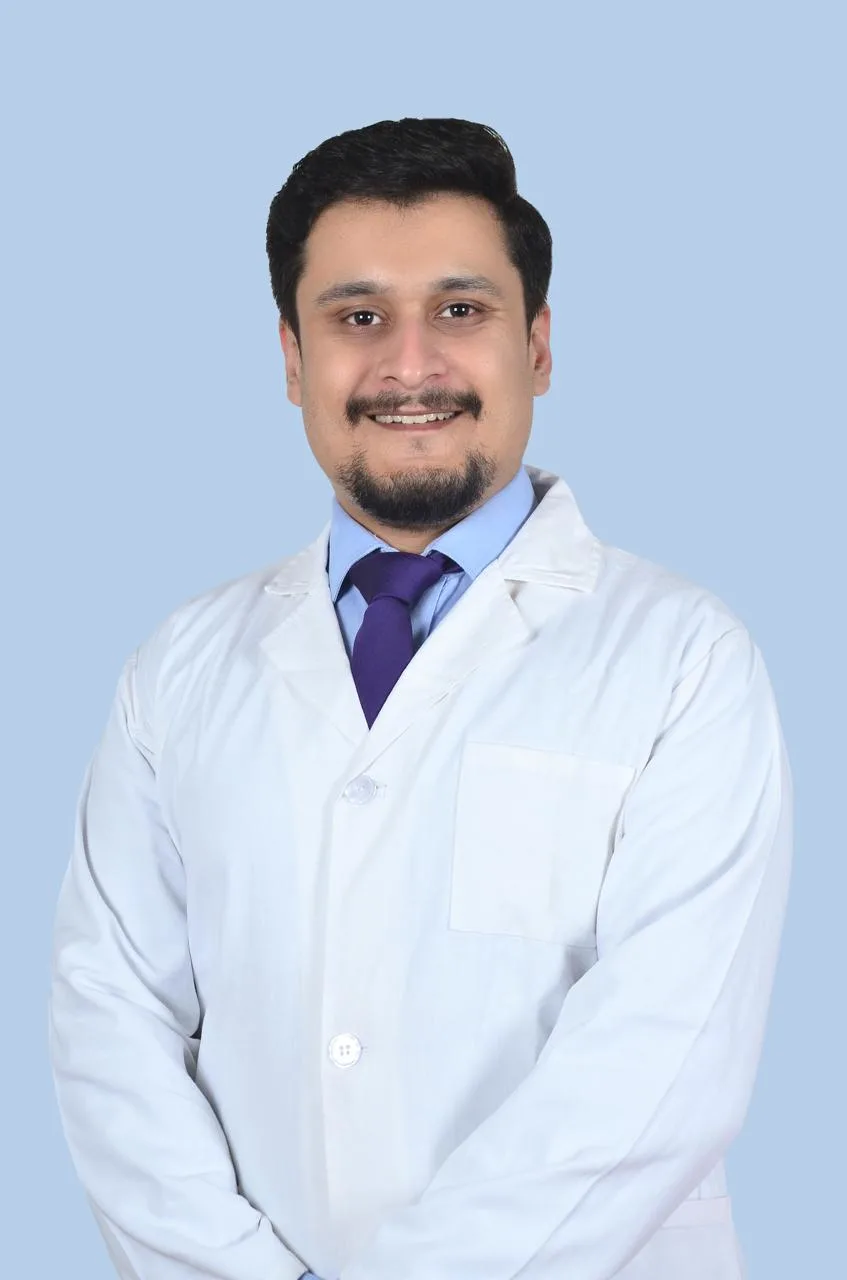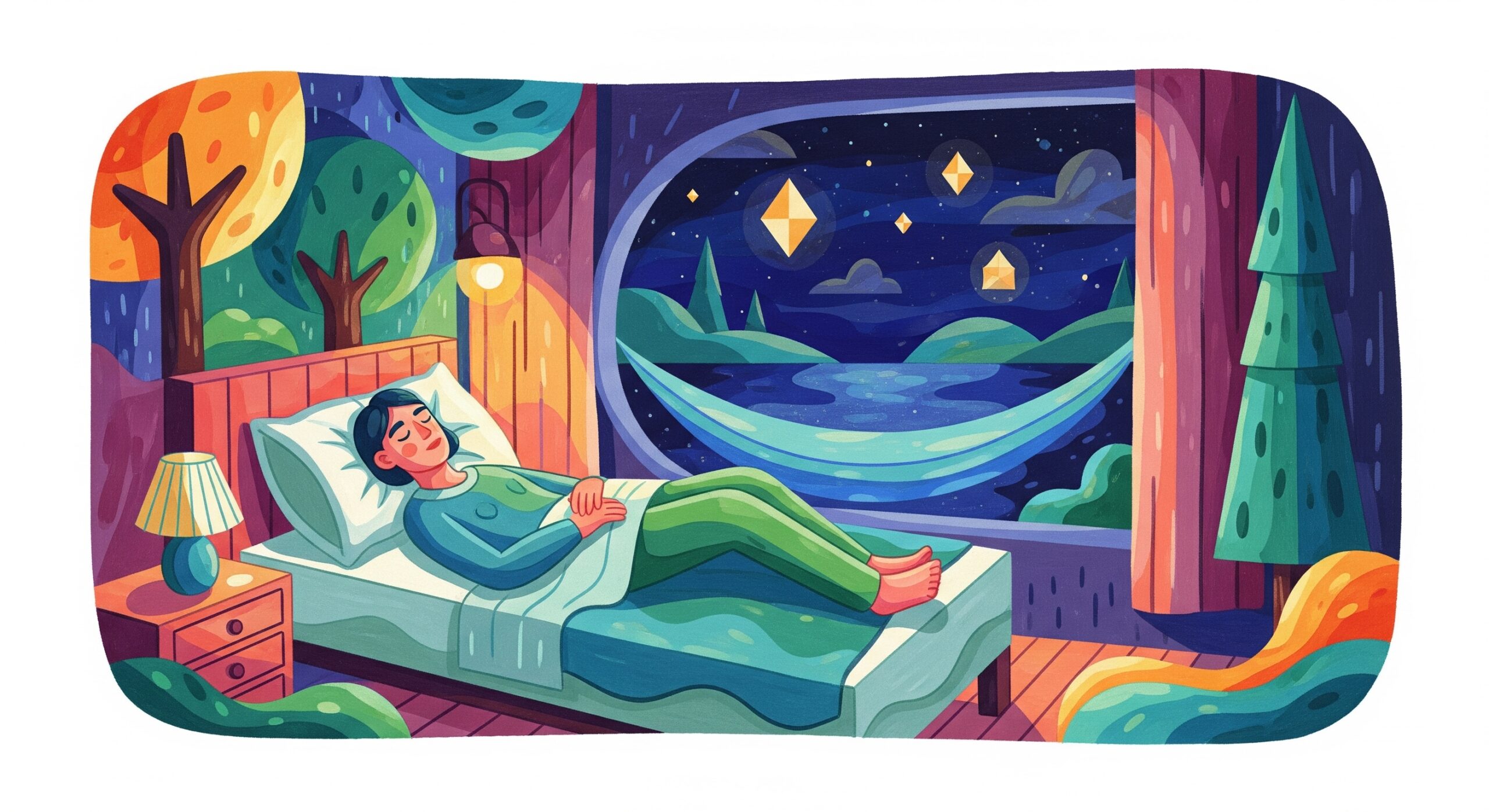Clinically Proven Care, Trusted by Thousands

What Makes Our Sleep Disorder Care Unique?
Personalised Sleep Therapy Plans
Your sleep challenges are unique, and so is our approach. We design personalised treatment plans that address the root causes of your sleep disorder, whether it's insomnia, sleep apnea, or restless leg syndrome.
Lifestyle and Circadian Rhythm Optimisation
We guide you through lifestyle changes that support natural sleep, including light exposure therapy, lifestyle changes, and structured sleep-wake routines to reset your circadian rhythm.
Integration with Other Treatments
If your sleep disorder is related to conditions like depression, anxiety, or chronic pain, we integrate your sleep therapy with other treatments to ensure full-spectrum mental health care.
Long-Term Sleep Health Support
Our care doesn’t stop once you start sleeping better. We provide ongoing support, education, and follow-ups to help you maintain healthy sleep habits for life.
Our Specialists for Comprehensive Sleep Disorder Care

Dr. Akul Gupta
Consultant Psychiatrist
Therapy Mode Online, In-person
Languages Hindi, English

Dr. Siddharth Sethi
Consultant Psychiatrist
Therapy Mode Online, In-person
Languages English, Hindi, Marathi

Ms. Lovleena Sharma
Clinical Psychologist
Therapy Mode Online, In-person
Languages Hindi, English

Ms. Ayushi Paul
Clinical Psychologist
Therapy Mode Online, In-person
Languages Hindi, English, Bengali

Ms. Sulagna Mondal
Clinical Psychologist
Therapy Mode Online, In-person
Languages Hindi, English, Bengali

Dr. Sunil Mittal
Senior Consultant Psychiatrist
Therapy Mode Online, In-person
Languages Hindi, English

Ms. Mitali Srivastava
Senior Clinical Psychologist
Therapy Mode Online, In-person
Languages Hindi, English
Compassionate Sleep Disorder Care from Trusted Experts
At BetterPlace, our experts have helped over 50,000 people navigate sleep disorders and other mental health challenges. With specialised training and years of experience, we’re here to help you overcome restless nights, fatigue, and disrupted sleep patterns with the care you deserve. Our experts also Treat:
- Agoraphobia
- Alcohol use disorder
- Alzheimer’s disease
- Anorexia
- Anxiety and panic attacks
- Anxiety disorders
- Arachnophobia
- ADHD
- Autism spectrum disorder
- Binge Eating
- Bipolar disorder
- Body dysmorphic disorder
- Bulimia nervosa
- Claustrophobia
- Depression
- Dissociative disorders
- Eating Disorders
- Gambling disorder
- Gender dysphoria
- Hoarding disorder
- Insomnia
- Mood disorders
- OCD
- Panic disorder
- Personality disorders
- Phobias
- PTSD
- Postpartum depression
- Schizoaffective disorder
- Schizophrenia
- Social Anxiety Disorder
- Sleep disorders
Visiting BetterPlace for Sleep Disorder Treatment? Here’s What to Expect
When visiting BetterPlace, you can expect a welcoming environment where there is 0% judgment.

Detailed initial session (90 min)
Meet with both a psychologist and a psychiatrist
Comprehensive testing
Get an accurate understanding of your mental health
Treatment phase (3-8 weeks)
Get a personalised treatment plan
Long-term support
Get ongoing care with regular follow-ups
Transformation Stories at BetterPlace!
“I lived like a raja in my 20s (parties drinks etc etc) but I never never never expected it to effect me so much in my 30s. By 34 I was barely getting 3 hrs of sleep each day even tho I desprately wanted to sleep more. Last year it got so bad I went 3 days without sleep. Thats when my friend said come to better place. Dr Akul is my angel. She has got me a second life.”
“I used to think not sleeping well was just part of life. I had gotten so used to 4-5 hours of sleep that I didn’t even think it was causing me any harm internally. But after coming to Better Place I realised just how bad the quality of my sleep was, and that I was actually suffering from a sleep disorder. Dr Akul has changed the way I look at sleep and after going through lots of therapy I am now able to get a good 6-7 hours of sleep each day, sometimes even 8. I had no idea how much better life could be with good sleep!”
“I used to lie awake at night replaying every little mistake I made during the day. Somehow I felt trapped, endlessly thinking about the could’ve and should’ve. Therapy helped me change that inner dialogue and let go of the impossible standards I set for myself. Now, I rest easier—mentally and physically.”
Get Expert Sleep Disorder Treatment Today!
Visit us or book an online consultation
BetterPlace, East of Kailash
At National Heart InstituteFirst Floor, Annexe Building D Block, East of Kailash, New Delhi
BetterPlace, Gurugram
At Neelkanth HospitalGround floor, 1 Main Mehrauli-Gurgaon Road
DLF Phase 3, Gurugram
Overview of Sleep Disorders
What Are Sleep Disorders?
A Sleep Disorder is a condition that disrupts sleeping patterns and affects how much sleep you’re getting and for how long or frequently you’re sleeping. Sleep Disorders can affect cognition, memory, behaviour, and physical health.
You might find it harder to get a restful sleep, feel more moody or irritable than normal, and experience anxiety or even depression. Long periods of sleeplessness can cause delusion and hallucinations as well.
Symptoms of Sleep Disorders
- Difficulty falling asleep or taking more than 30 minutes to sleep
- Early sleep disruption, waking up in the middle of the night, not being able to fall asleep again
- Excessive daytime sleepiness or fatigue
- Feeling tired after sleeping
- Snoring, choking, mumbling, snorting or gasping during sleep
- Irritability or mood changes
- Poor concentration
Types of Sleep Disorders
Insomnia : Insomnia is characterised by difficulty in falling or staying asleep. You also experience daytime sleepiness and may have trouble functioning while awake. It is often caused by stress, anxiety, or improper sleep schedules.
Sleep Apnea : Sleep Apnea typically involves difficulty breathing during sleep sessions. You often snore loudly and may wake up choking up. There are two types of Sleep Apnea: Obstructive sleep apnea, where the muscles in the back of the throat relax, blocking the air passage and causing breathing difficulties. The second is Central sleep apnea, where the brain stops sending signals to the muscles that control breathing.
Narcolepsy : Narcolepsy is characterised by extreme tiredness even after sleeping for long durations at a time, and an irrepressible urge to sleep that is often called “sleep attacks”.These sleep attacks are caused by disruptions in the brain’s ability to regulate the sleep-wake cycle.
Restless Leg Syndrome (RLS) : You experience uncomfortable sensations such as tingling or crawling, causing an irresistible urge to shake your legs. The exact causes of RLS are unknown but it is linked with pregnancy, Parkinson’s disease, and iron deficiency.
Parasomnias : Parasomnias is a group of Sleeping Disorders that involve abnormal behaviours or movements, before or after falling asleep, or during sleep. These behaviours can pose a risk to you and people around you.
E.g.: Sleepwalking, sleep terrors, nightmares, sleep talking, etc.
Circadian Rhythm Disorders : Circadian Rhythm Disorders are those Sleep Disorders that disrupt your body’s natural 24-hour clock. In this case, you have trouble falling asleep or staying awake at normal times, or normal sleep cycles.
E.g.: Jet lag, Shift Work Disorder, Delayed Sleep-Wake Phase Disorder, etc.
Causes of Sleep Disorders
Physical Disturbances : Physical conditions, especially chronic ones like arthritis can cause discomfort in certain sleeping positions and act as a cause of poor sleep.
Stress and Anxiety : Stress and Anxiety can impact sleep quality and make falling asleep more difficult. Nightmares, poor sleep schedule, poor quality of sleep, and difficulty sleeping or maintaining sleep are some indicators of stress or anxiety that can later manifest as Sleep Disorders.
Environmental Issues : Loud noises outside your house, bright lights inside your home, snoring partner, etc. can disrupt sleep. Regular disruptions in your sleep can become a cause of Sleep Disorders.
Diagnosis and Treatment
Identifying Sleep Disorders is the first step towards better rest and improved health. Diagnosis often includes a detailed discussion of your sleep habits, daily routines, and any symptoms disrupting your rest. Tools like sleep diaries, wearable trackers, or in-clinic sleep studies such as polysomnography help pinpoint issues like Sleep Apnea, Insomnia, or Restless Leg Syndrome. Understanding the root cause of your sleep challenges allows tailored treatment plans that address your specific needs, helping you get back to restorative, quality sleep.
Treatment Options for Sleep Disorders
Cognitive-Behavioural Therapy for Insomnia (CBT-I) : Cognitive- Behavioural Therapy for Insomnia (CBT-I) is a highly effective approach for tackling Insomnia by addressing the negative thoughts and habits that keep you from sleeping well. You learn strategies to reduce sleep anxiety, adjust unhelpful sleep patterns, and establish healthier habits that promote restful nights.
Medication : Depending on your Sleep Disorder, your care plan might include sleep aids, antidepressants, or melatonin supplements. These can help you fall asleep faster, stay asleep longer, or regulate your sleep-wake cycle. Medications are often used alongside other treatments for maximum benefit.
Lifestyle Modifications : Simple changes to your daily routine can significantly improve your sleep quality. Focus on maintaining a consistent bedtime, limiting caffeine and screen time before bed, and incorporating regular physical activity. Combining these habits with better sleep hygiene can lead to more restful nights.
Continuous Positive Airway Pressure (CPAP) : Continuous Positive Airway Pressure (CPAP) therapy might be recommended if you’re struggling with Sleep Apnea. This treatment uses a device to deliver steady air pressure, keeping your airways open while you sleep. By addressing interrupted breathing, CPAP can reduce snoring, improve oxygen levels, and help you wake up more refreshed.
The Cost of Sleep Disorder Treatments at BetterPlace
At BetterPlace, we’re committed to providing affordable, high-quality care to help you overcome sleep challenges. Our services are designed to fit your needs and budget, with appointment fees starting at just INR 2,000. Your journey begins with a comprehensive 90-minute intake session with our expert psychiatrists and psychologists.
During this session, we’ll take the time to understand your sleep patterns, chief complaints, and your overall well-being. This in-depth assessment allows us to create a treatment plan tailored specifically to you. Whether your care involves therapy sessions, medications, or specialised diagnostic tools like polysomnography, our focus is on delivering personalised, effective solutions that support you on your mental health journey.
FAQs about Sleep Disorders
We offer a comprehensive approach for individuals dealing with insomnia, which is one of the most common types of sleep disorders. Depending on your symptoms, we may recommend a clinical consultation or a sleep study test to understand your underlying causes better. If you’re based in Delhi NCR, you can visit our partner lab for a sleep study test in Delhi.
The most common Sleep Disorders include Insomnia, Sleep Apnea, Narcolepsy, Restless Leg Syndrome, and Circadian Rhythm Disorders. Each condition affects sleep differently, but all can significantly impact your energy and overall well-being. If you’re experiencing ongoing issues, a sleep disorder test can help identify the root cause and guide the right treatment approach.
Diagnosing a Sleep Disorder involves understanding your symptoms and patterns. Your doctor might use tools like sleep studies, polysomnography, or home sleep tests, alongside interviews to uncover the issues affecting your rest.
Some Sleep Disorders, like certain types of Insomnia can be resolved with treatment and lifestyle changes. Others like Sleep Apnea or Narcolepsy require ongoing management to help you maintain quality sleep and improve daily functioning.
If sleep issues last for more than a month or interfere with your daily activities, it’s time to seek professional help. Don’t wait—better sleep can lead to better health and a happier life.
Adopting a consistent sleep schedule, reducing screen time before bed, avoiding heavy meals or caffeine late in the day, and practising relaxation techniques can all make a big difference in how well you sleep. Small changes can add up to big improvements over time.








